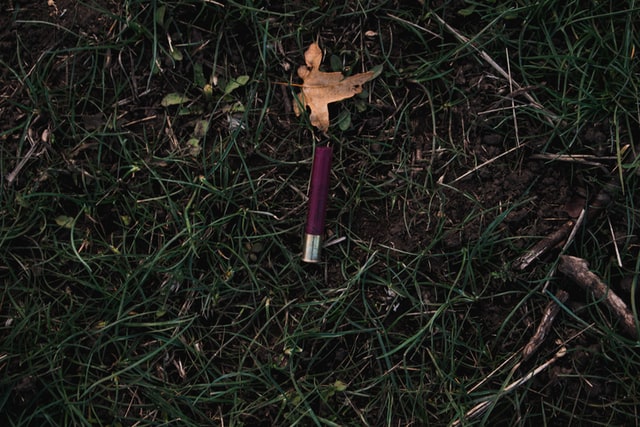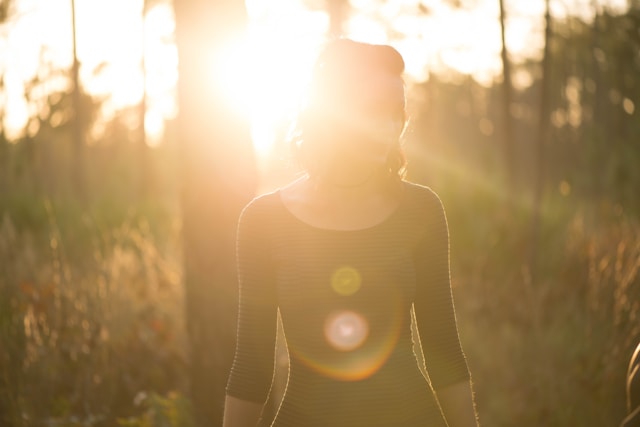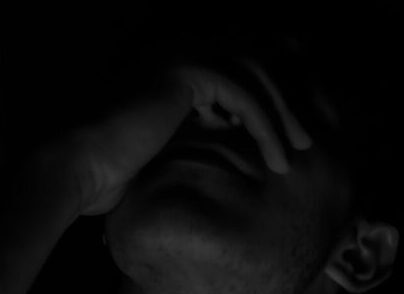Tom
I’m on a ladder painting the Peterson’s gutters when Josie’s mother pulls up in that old green Chrysler of theirs, thick black smoke shooting out of the exhaust pipe and the engine idling hard, like a worn-out washing machine. I never could figure out why they kept that heap of junk, why they didn’t trade it in for something more reliable. But then I never could figure out Josie’s family, period.
As soon as she gets out of the car, I know something’s wrong. That little bun of hers she usually keeps so tidy has come undone; long strands of graying hair fall across her face as if she’s trying to disappear behind them. Plus she’s still wearing her apron.
A sinking feeling comes over me.
My first thought is something’s happened to Josie. She’d been pretty unhappy of late, what with her father drinking all the time and her mother trying her best to ignore it. She’d even mentioned suicide a few times, said her life wasn’t worth a hill of beans. Which, to say the least, didn’t exactly make me feel good.
I carefully place my paintbrush across the top of the paint can and start climbing down the ladder, my heart in my throat.
I’m halfway down when Josie’s mother starts waving her arms, that loose hair of hers swinging against them like windshield wipers. Her skin is gray, the color of fresh cement, and the flesh around her eyes is puffy, exactly the way Josie’s eyes look after she’s been crying a long time. “He’s playing with those guns of his again, Tom. Can you come right away? I’m at the end of my rope.”
I’m behind on the paint job because the week before it had rained almost every day.
I know if I leave now, Mrs. Peterson will split a gut. But what choice do I have? I would have done anything for Josie’s family because I was crazy about Josie and because I could see how they all suffered, especially Josie. Her brothers were away at some sports camp or another and her sisters had long since married and moved out. That left Josie to bear the brunt of her father’s drunken rages.
Trouble is, there wasn’t really much I or anyone could have done for them. It was funny how they’d have a crisis and then afterward go about their business, as if nothing had happened. I guess a lot of families are that way, most maybe. The elephant in the living room is what the shrinks call it. I mentioned this to Josie once, and she said that wasn’t exactly right, that she herself had tried to get help: she’d written to her grandmother about her father’s drinking, about how bad it was and couldn’t she–her grandmother– do something? Her grandmother had written back admonishing Josie for being melodramatic. That letter just about broke Josie’s heart.
When I get to the bottom of the ladder, Josie’s mother takes one look at me, her lips quivering, and starts to cry. “He went out to the stables with that shotgun of his. There’s no telling what he’ll do. He won’t listen to me. Maybe you can knock some sense into him?”
I remove my baseball cap and, with my forearm, wipe the sweat from my eyes. It’s so hot my hair is stuck to my scalp, like wet fur.
“What about Josie?” I ask. “Where’s Josie?” I’m trying to stay calm, but the truth is I’m scared. It’s not the first time I’ve had to rescue her family from her father’s shenanigans.
“She’s gone to the library. I told her she should stay away for a while until things settle down.”
“Okay,” I say. A part of me is relieved. I know how much Josie relies on those books of hers to keep her calm. They’re her solace, her refuge from all the craziness in the world.
But another part of me is angry: angry at Josie’s father and at her mother for not taking better care of their daughter.
“Let’s go,” I say. “You can follow me.” I put my cap back on, hoist myself into my van and start the engine. Inside, the air is stifling, even with the windows down; the steering wheel is hot to the touch. My heart is pounding but not in a good way. I wait for Josie’s mother to back out of the driveway, then I follow her. I don’t even bother to let Mrs. Peterson know I’m leaving.
I check my watch. It’s almost noon. I’m thirsty, so I reach into the small cooler I keep on the front seat and, with my elbows on the steering wheel, pop open a Coke. The pause that refreshes. Then I look in the rearview mirror to be sure the Chrysler is behind me, take a sip of Coke, and press my foot on the accelerator.
Up ahead the macadam has melted in thin patches on the road, oozing up from the cracks and bubbling like hot blueberry sauce. I’d give anything right now to be sitting on the bank of the creek behind my house, dipping my toes in the cool, clear water, listening to the sound of the frogs and watching the occasional crayfish surface. But life doesn’t always hand you what you want. I’ve had to learn that the hard way.
Ditto for Josie’s family. When it comes to tormenting them, her father has quite an imagination. Like the time he burned Charlie’s bats the summer after I graduated from high school. Josie and I had been dating just a few months, seeing a lot of each other in the evenings. I was roofing during the day, saving money for college tuition. That particular night we had planned to go to the drive-in. Josie wanted to see some film whose name I can’t remember, about a couple who invent an imaginary son and fight all the time. Not my cup of tea by a long shot, but to tell you the truth, it didn’t much matter what we saw because we usually ended up making out in the back of my old Chevy and ignoring the film altogether. We just couldn’t keep our hands off each other.
When I pulled into their driveway to pick up Josie, her brother Charlie was perched on top of the picnic table, his little blond head cradled in his hands, like he was praying. His baseball glove was tucked between his knees. “Hey, Charlie,” I said. “What’s up?”
Charlie lifted his head enough for me to see he’d been crying. “Down there.” He pointed in the direction of the chicken coops. “He’s burned them, all of them.” He was gulping air, trying not to cry.
I turned and looked down toward the coops. Plumes of smoke like velvet ribbons were drifting up from a spot on the ground about three yards from the front of one of the coops. “Stay here, Charlie,” I said. Then I ran as fast as I could down the slope towards the smoke. The whole time I kept thinking how odd it was to have a fire going in the middle of the summer.
And there they were: Charlie’s baseball bats– or what was left of them–smoldering in a pile of ash. You could still see the Louisville Slugger label on one of the bats.
It didn’t take a rocket scientist to figure out who was responsible for those scorched bats. What father does that to his kid?
After that day, I had a whole new appreciation for what that family had to endure. And it frightened me. But I guess not enough to call it quits with Josie.
So when her mother came to me the day I was painting the Peterson’s gutters, I tried to prepare myself for what I might find. But I’m not sure you can ever fully brace yourself for disaster.
When we pull up in front of the carriage house, right away I notice the gate to the stable below the barn is wide open; one of the horses, the roan, is standing in the paddock on the other side of the fence, swatting flies with his tail. The palomino pony is nowhere in sight, which seems strange because the two are always together. I run down to the open gate, into the paddock, and poke my head inside the stable, thinking maybe the pony has gone in there. But the stable is empty.
That’s when I hear a shot coming from the hayloft above.
I guess I’m crazy to do what I do next, but sometimes in these situations your adrenalin takes over and your brain just stops functioning. Fight or flight.
There’s a set of wooden steps leading to the barn above, so I clamber up the steps as fast as I can, my heart racing a mile a minute, my breath coming in spurts.
When I reach the loft, the first thing I notice is a shaft of light cutting a wide swath across the floor of the barn. At the end of the light is Josie’s father. He’s sitting on his heels, with his head bowed and his shoulders heaving, gripping a shotgun in his left hand. To his right is the palomino, lying on its side in a heap next to a bundle of straw. One leg is tucked underneath itself; the other three legs are splayed out like the spokes of a wheel. I can smell the blood, like hot metal. It’s seeping from the pony’s head and mouth, forming puddles on the floor of the barn. I’ve killed enough deer to know the pony is dead.
I move cautiously towards Josie’s father, all the while keeping a watchful eye on the shotgun. I can hear him breathing, hard and fast. “It’s me, Mr.G. It’s Tom,” I say in a near whisper. I’m breathing hard, too.
Josie’s father looks up with the most confused expression on his face. “Tom,” he says. I put one hand on his shoulder to steady myself and, with the other hand, grab the shotgun by its barrel and slowly ease it from his grip. The butt of the shotgun is still hot. Then I take a few steps away from Josie’s father, slide the pump of the shotgun towards me, and release the shot. Then I drop the shot in the pocket of my overalls and walk out of the barn with the gun.
When I get to my van, I shove the shotgun under the front seat and go into the house.
Josie’s mother is sitting at the kitchen table, peeling potatoes. She’s redone her hair into a tidy bun and put on lipstick. “Tom?” she says in a half-whisper. “Is he okay?”
What do you say to a woman whose husband has just killed the family pony and for no good reason that I can see.
“I don’t know, Mrs. G; I just don’t know the answer to that. He’s shot Buttercup. Next time it’ll be you or one of the boys or, or….. Josie.” I nearly choke on my words, I’m so angry. “Your husband needs help.”
I’m ashamed to admit it, but at that moment I think how much better off they would all be if he had shot himself instead of the pony. What he put that family through was living hell. Pure, unadulterated hell.
I didn’t return to the Peterson’s that day. Instead, I persuaded Josie’s mother to call the police, then went back to the barn and covered the poor pony with a blanket. Josie’s father was still there, only he had gotten up and was sitting on a bale of hay looking stunned. “Just to let you know, we’ve called the police.”
By the time a policeman arrives an hour later, Josie’s father has sobered up enough to convince the officer that it had been an accident, that he had been cleaning his gun when it went off. But I knew better. And so did Mrs. G. Josie’s father had deliberately killed that pony just as he had burned Charlie’s bats that summer.
Life for Josie’s family didn’t really get any better after that. Her father sobered up for a few weeks and promised they’d get another pony. But then he was back to his old tricks before too long, though without the shotgun.
It was like they were all caught in a giant spider web and couldn’t get break loose.
I did the one thing I could think of to free Josie: I married her, shortly after my junior year of college. By then she was practically living with me and my parents. But in my heart of hearts, I knew I could never really rescue Josie from her family drama. Because no matter how much I tried to assure that I loved her, it was never enough for Josie. She drank me dry. There were just too many demons floating around in her head.
When her father finally died of alcohol poisoning five years later, I guess it was kind of a relief for the family. But by then Josie and I had just about lost any hope of keeping our marriage going.
And even though I have a new life, with kids and a wife I really love, I miss Josie sometimes, I really do. I can still picture her in her cheerleader’s uniform, with that cute little ass of hers swinging back and forth and that ponytail following suit. I miss the dreams we had for our life together. I miss the way she used to curl up in a ball and snuggle against me when we slept at night, like clinging to me was the only way she could save herself.
It might not have been such a bad life.

Alison Goeller is a former professor of American literature now living in southern France. Her short stories have appeared in The Painted Bride, Potato Soup, The Literary Yard, The Gathering, SandPaper and other journals. She has also written three murder mysteries, two of which (“Frozen in Love” and “The Possessive Case”) are available on Amazon.com, and is working on a novel about the Grand Tour of Europe, based on her great grandmother’s diary.



